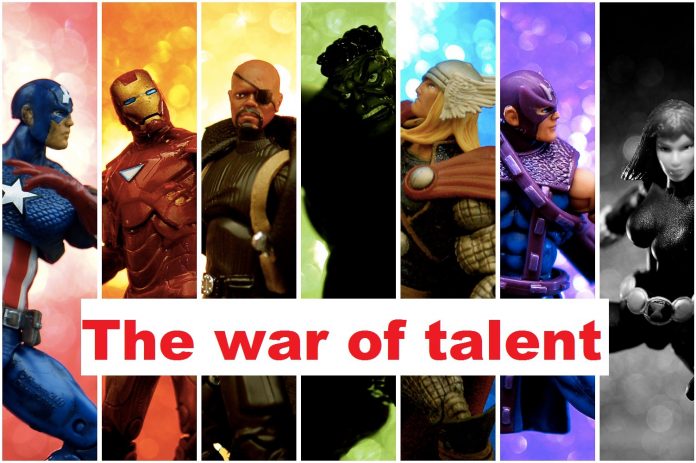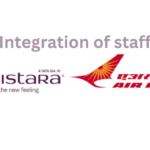We often hear stories about how star developers in the Silicon Valley hire agents to sell their skills. It is said that the world bends over backwards to hire star developers from the Silicon Valley, and that they are a special lot. Has the industry transformed into one where talent calls the shots or are organisations just playing a smart game of making them believe so?
Rajita Singh, Head HR, Broadridge Financial Solutions

Let us take the example of Marvel Comics, which was founded in the late 1930s. Most of Marvel’s fictional characters operate in a single real world known as the Marvel Universe, with locations that mirror real-life cities. Likewise, most of the so called talent wars are also taking place in a single universe —the corporate world. Nothing really changes, and no one really wins. This is because one learns what is right or wrong or whether it’s a win or a loss, only in hindsight.
Taking the thread of Marvel further, over the years teams have been formed featuring a rotating line-up composed of a large number of characters—the ‘Avengers’. In today’s world, most of the companies are looking for skills or expertise in multiple domains or technologies. Only a team is capable of succeeding and not individuals, given the nature of these beasts.
To me, HR is the organisation behind the Avengers. If we assume that every business unit and every business leader or an associate is a super hero – to derive the most powerful impact – it is all up to the HR with their knowledge and the capability to bring together teams to ensure best results.
In the past, the super heroes could have been brought together just by instinct or biased opinions, but today with the data available, HR can easily take intelligent decisions. Talent, as mere talent, is a waste if it is not put to proper use, and the ability to identify and get the best out of it is the key.
Rachna Mukherjee, Chief HR, Schneider Electric India

One thing remains constant—the challenge faced by executives of finding and keeping talented employees. Leaders must also be aware of the impact of counter-trends that creates complexities but also opportunities on the talent battlefield. Winning the war for talent takes an arsenal of tools from planning and recruiting, to development and retention. It also includes careful management of an employer brand.
Competition pressures and globalisation are constantly changing the business environment. The war of talent has certainly intensified over the past few years due the number of opportunities that have cropped up, given the improving health of the economy. The talent war exists for all organisations. In an increasingly competitive world, how companies fight this battle has become a critical differentiator.
There are a number of factors behind this trend, which is unlikely to abate any time soon and organisations need to understand these factors and formulate a response in order to continue to attract and retain the top pick of Indian senior talent. While economic sentiment is buoyant, availability and access to quality talent continues to be a serious impediment for organisations. Paucity of talent is likely to continue to pose a problem over the next five years. Organisations have now started to acknowledge talent as one of the key factors in order to steer the next wave of growth.
Santosh Rai, Dy. General Manager-HR &IR, L&T Special Steels and Heavy Forgings

In my opinion, in the war of talent, talent has already won. To begin with, it is logical and paramount to discuss the criticality of talent, because nowadays resources like capital and raw material are easily accessible. Strategies are transparent and can be easily adopted and replicated. Thus, talent becomes the prime mover and differentiator for sustainable competitive advantage.
In today’s scenario, where skills are niche, attracting and retaining talent has become a challenge for organisations. At the country level and across different industries, we find that competence scarcity is omnipresent. Most academic institutions are not well equipped to meet the requirement of industry, neither do they look keen to be associated with industry for sharpening the skill set as per requirement. Similarly, It is also seen that very few companies are coming forward to establish a connect with academic institutions. This causes a severe deficit of entry-level talent pool.
Companies need to move far ahead in the area of structured competence enhancement and talent engagement initiatives. The aforementioned factors lead to a demand–supply mismatch situation creating a shortage of talent in the market. Technology has played a key role in intensifying this war of talent. While companies are taking the fullest advantage of technology, a candidate can also have easy access to the job market through mobile applications and social networking sites. Technology has broken all barriers across the globe. Talent mobility has become a highly simple process at the global level.
Another concern area for business is appreciation and taking cognizance of the situation of war of talent. This requires a systematic analysis of attrition and preparation of an action plan. Data indicates that majority of the employee attrition takes place in the age group of 25 to 35 years. In fact, this lot is critical to the talent pipeline.
To summarise, in the war of talent where talent is playing the dominant role, it is imperative to be proactive. Organisations can manage the situation through cautious attraction of talent, implementation of a systematic talent development plan and retention of talent through various tailor-made employee engagement initiatives. Companies which are sensitive to the subject and prefer to follow a holistic approach to deal with current and future talent management requirements, will always have an extra edge in the business.
Value our content... contribute towards our growth. Even a small contribution a month would be of great help for us.
Since eight years, we have been serving the industry through daily news and stories. Our content is free for all and we plan to keep it that way.
Support HRKatha. Pay Here (All it takes is a minute)





































Absolutely love rajitas bytes . Especially the super hero and avengers similie . In a financial services world this mindset of regarding each team member as a Super Hero driving a common goal can be miraculous !!
Absolute agree with the avangers angle..the output of a HR team is always viewed as a group task.
Not sure, if the point of debate has been addressed enough.
If talent had won, then it could mean, that the ‘talent’ is completely in control of their job, their compensation, of their work, or in simple terms enjoys an entrepreneurial rather than an employee relationship with the employer.
How many companies, how many employees that we know of, are in a relationship where they can propose their compensation, have equities vested on them, have royalties paid on their inventions, can determine the numbers of hours they will work, and so on? It is such things that would determine if talent has won!